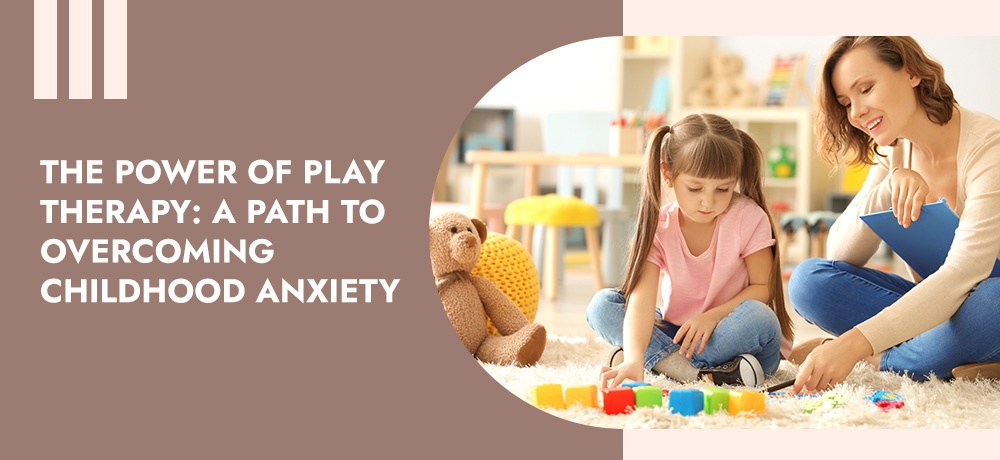
The Power of Play Therapy: A Path to Overcoming Childhood Anxiety
- Allius Counselling and Family Mediation Services
Categories: Behavioral Issues in Children , child counselling , Child Mental Health
Childhood anxiety can be a formidable obstacle, impacting a child's overall well-being and development. As parents, caregivers, and professionals, we all want the best for our children, but helping them navigate through anxiety can be challenging. At Allius Services Inc., our mission revolves around connecting people with the tools and strategies they need to foster emotional growth, especially in our younger generations. Today, we're going to delve into a powerful method to address childhood anxiety: play therapy.
The Magic of Play Therapy
An Innovative Approach to Healing
Childhood anxiety is not a trivial issue; it can significantly disrupt a child's life and development. Traditional approaches, such as cognitive interventions, may not always be the most effective means of addressing this issue. Play therapy, on the other hand, has proven to be a game-changer.
Understanding Play Therapy
Play therapy is a form of psychotherapy that utilizes play, toys, and creative activities as a medium for communication. It provides a safe and non-judgmental space where children can express their thoughts, emotions, and concerns through play. This approach acknowledges that children often find it challenging to articulate their feelings, making play a crucial tool for self-expression.
Why Play Therapy Works for Children and Youth
Fostering a Safe Environment
One of the core principles of play therapy is creating a safe and supportive environment. For children, this is vital as it allows them to feel comfortable and open up about their anxieties and fears. Unlike traditional therapy, where children may be reluctant to speak openly, play therapy encourages them to communicate through play, art, and storytelling.
Processing Anxiety and Trauma with Sand Tray Therapy
Within play therapy, the use of sand tray therapy stands out as an invaluable tool for processing anxiety and trauma. It involves creating a miniature world within a sandbox using various figurines and objects. Children are then encouraged to tell stories, build scenarios, and explore their emotions within this miniature landscape.
Sand tray therapy provides a symbolic platform for children to work through their inner turmoil. By creating scenes or scenarios, they externalize their feelings, making them easier to process and understand. This approach helps children come to terms with their emotions and develop healthy coping strategies.
Building Resilience and Coping Skills
Through play therapy, children develop valuable life skills such as problem-solving, emotional regulation, and empathy. These skills empower them to manage their anxiety more effectively and build resilience in the face of adversity. As they gain a deeper understanding of their emotions and the triggers for their anxiety, they can gradually learn to control and mitigate their anxious responses.
Childhood anxiety is a serious concern, and its impact on a child's life can be long-lasting. Play therapy, with its emphasis on creative expression and emotional healing, offers a highly effective approach to helping children and youth overcome anxiety.
If you're seeking professional assistance for your child's anxiety, don't hesitate to reach out to Allius Services Inc. We have a dedicated team of experts who are passionate about using play therapy to make a difference in the lives of children and youth.
We believe that it's all about people connecting with themselves to connect better with others. Play therapy is a powerful tool that helps children connect with themselves, understand their emotions, and ultimately build healthier connections with the world around them. By harnessing the magic of play therapy, we can guide children on a journey toward a happier, more confident, and anxiety-free future.
To learn more about the services we offer, please click here. To contact us, please click here or call us at (250) 753-0363. Your child's well-being is our top priority.
